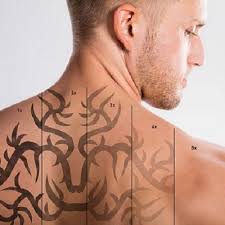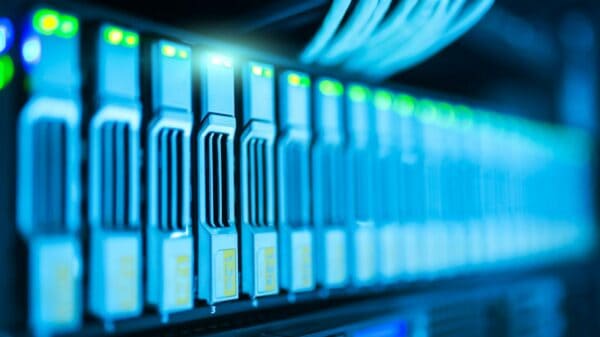The Travel Industry is highly competitive, and customers expect innovative ideas and services at affordable prices. The Internet of Things (IoT) is one of the significant and emerging technology trends within the travel industry that offers a scope of innovative services. IoT typically refers to physical devices fitted with internet connectivity, making them capable of exchanging data. IoT’s ability to offer advanced connectivity and communication amongst devices, systems & services is unprecedented and has the potential to transform the travel industry and how it operates.
In this article, I’ll discuss IoT’s core applications in the travel industry and the benefits they offer.
Exploring The Benefits Of IoT In The Travel Industry
- IoT enables the personalization of services and offers a tailored experience for their customers.
- IoT sensors can help optimize energy consumption and improve operational efficiency within airports and train terminals, making smart building a reality.
- Flight check-ins become more fluid and simpler using IoT sensors.
- IoT can help track rental cars and streamline the booking and renting process.
- IoT can help generate new revenue streams, which can come from creating new services or using existing solutions that can help make efficiency gains to help ease implementation.
- IoT can provide a more differentiated product or service for a better customer experience that can strategically differentiate travel locations.
IoT Applications That Help Transform The Travel Industry
- Smart Hotels: IoT-enabled devices can be used to create smart hotel rooms. Guests can control various room features through connected devices or mobile apps, such as lighting, temperature, and entertainment systems. Hotels can utilize IoT to monitor energy consumption, optimize resource usage, and automate maintenance processes.
- Baggage Tracking: IoT helps track & monitor luggage throughout the travel journey. And by attaching IoT-enabled tags or sensors to bags, travelers and airline staff can track their location in realtime. It reduces the chances of lost or mishandled luggage and provides a better travel experience.
- Location-Based Information: Bluetooth, GPS, and beacon technology have all opened up new horizons and possibilities for delivering location-based information. Such devices can help guide guests around the premises. Using IoT for indoor navigation can help users avoid straying away from points of interest within the premises and accurately guide them to their point of interest. Similarly, IoT coupled with in-house apps can be of immense utility for people attending conferences or exhibitions. It helps point them to the right location within the premises, helping eliminate time wastage.
- Smart Transportation: To improve transportation services, IoT can help the travel industry from within. For example, connected buses, trains, or taxis can provide realtime schedule updates, delays, and availability. IoT sensors can help optimize traffic flow, reduce congestion, and enhance safety in airports, train stations, and other transportation hubs.
- Personalized Travel Experiences: IoT devices and sensors can collect data on travelers’ preferences and behaviors. This data can personalize travel experiences, offer tailored recommendations, and provide realtime assistance. For instance, IoT-enabled beacons can deliver location-based offers or notifications to travelers based on their interests and preferences. It helps enhance personalization within hotels and flights. It has been made possible by allowing customers to control appliances or services through a centralized mobile device such as a mobile phone, tablet, or even a smart wearable. This can mean allowing guests to control the heating, air-conditioning, ventilation and more using the hotel app on their mobile or even a wearable device or by a mobile device that can be provided to guests during their stay. Such devices can also control the television, piped music, and lighting. Such a personalized experience can enhance the holiday and give guests a measure of control during their visit.
- Smart Airports: For airports, IoT can help create smart & efficient spaces. Sensors and connected devices can monitor passenger flow and optimize security processes while providing realtime updates on flight statuses, gate changes, and baggage claim information. Further, smart airports can enhance operational efficiency, improve passenger experience, and reduce waiting times.
- Safety and Security: IoT can enhance safety and security by connecting surveillance cameras, access control systems, and sensors. It can provide realtime monitoring while alerting authorities in case of emergencies or suspicious activities. IoT-enabled wearable devices can also be used for personal safety and emergency response.
- Energy Optimization: Energy spending is one of the major parts of a hotel expense, coming second only to employment expense. It can represent 3–6% of the operating cost and accounts for nearly 60% of its CO2 emissions. IoT sensors within the premises, including guest rooms, conference rooms, and recreational facilities, can be used to adjust room conditions like HVAC, power and lighting depending on the status of that particular area.
- Data Analytics: IoT combined with AI and data analytics modules help hospitality companies become more efficient. IoT devices can send a continuous stream of data based on guest interaction within the premises to the central server allowing for better planning, studying customer behavior to provide better service and device personalized and targeted marketing campaigns. IoT devices can also help the staff to be more efficient by streaming real-time attendance records, work logs, and other data that can be used constructively to reduce or eliminate time lags and material wastage.
To Conclude
Many industries can benefit from IoT technology, and the travel industry is no exception. The Internet of Things enables personalized travel experiences, automation of time-consuming tasks, and much more to make travel more efficient and relaxed. It helps make the travel business efficient, productive, and profitable and enhances customer experience. Many more applications of IoT are possible to expand its relevance in the travel sector further. An IoT application development services company can help incorporate this technology into its existing initiatives to leverage and create an efficient travel industry.
A professional and security-oriented programmer having more than 6 years of experience in designing, implementing, testing and supporting mobile apps developed. Being techno geek, I love to read & share about the latest updates in technology including but not limited to IoTs, AI, application development, etc. In my free time, I like to play football, watch movies and explore new places. I have been learning mobile app development since 2012. With having a good understanding of programming languages, I develop native as well as web apps for both iOS & Android using latest tools & technologies. I am also having experience in both front-end & back-end development.























































































































































































